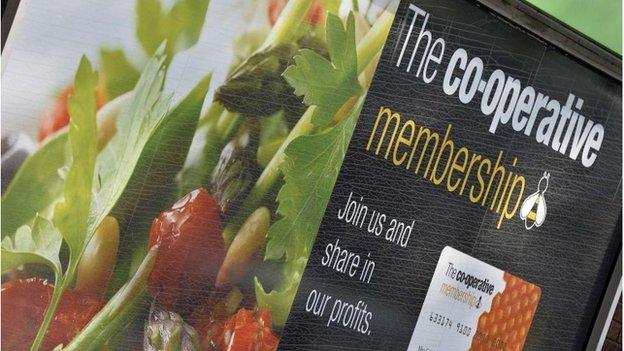Co-op Group's annual meeting - what's at stake?
- Published
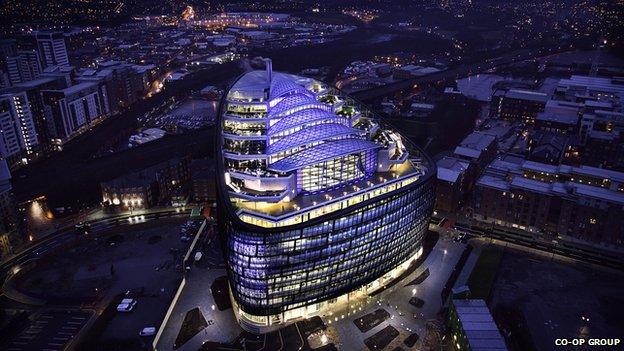
The Co-operative Group's annual meeting will take place in its new head offices in Manchester
The largest mutual business in the UK, the Co-op Group, is holding its annual general meeting on Saturday, with representatives voting on whether to overhaul its corporate structure, among other things.
A report into the governance of the beleaguered organisation, carried out by former City minister Lord Myners, called the board "manifestly dysfunctional," and said it was in desperate need of reform.
Lord Myners, who is a former Co-op board member, said the Group should adopt a much smaller board and focus on being profitable in order to survive.
His proposals are echoed in a motion that will be put forward to Co-op stakeholders in a special general meeting on May 17, which will follow the regular annual meeting.

Why has the Co-op been in the news?
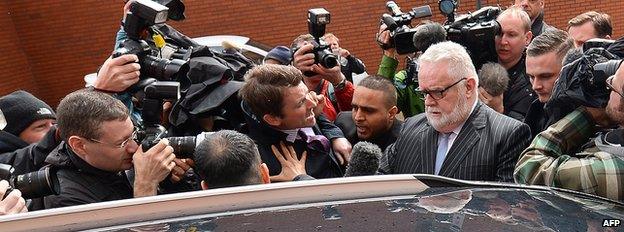
The 150-year-old mutual has had a tough year.
Last month, the Co-op Group reported losses of £2.5bn for 2013, the worst results in its history. It has also recently lost its chief executive, Euan Sutherland, who claimed the organisation was "ungovernable".
The Group has also been embroiled in a scandal over its banking arm, the Co-op Bank, which was found to have a £1.5bn black hole in its finances last year. To make matters worse, the man in charge of the bank at the time, Paul Flowers, was arrested and pleaded guilty for drugs possession.
Co-op Group owns around 30% of the bank.

Who is attending the annual meeting?
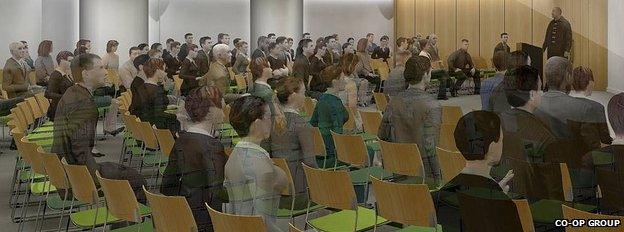
Although the Co-op group boasts almost 8 million members, barely a few hundred will attend the meeting on Saturday. This is largely down to how the Co-op Group's governance is organised.
Unlike in corporate companies, where each share entitles the holder to one vote, Co-op members vote for their regional representatives, who in turn vote at the annual general meeting.
There will also be representatives from independent Co-op societies, such as the large Midcounties Co-op.

What will members be voting on?
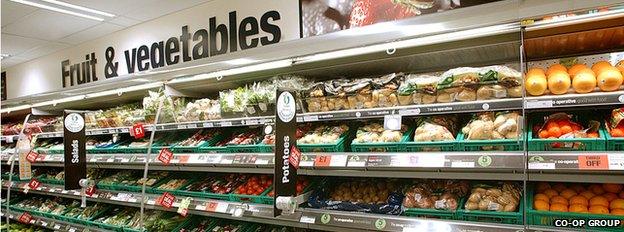
The regular annual meeting - which deals with business issues such as cost reduction, the local sourcing of food in its shops, and pay ratios for staff - will be followed by a special general meeting - in which representatives will vote on the structural reform of the Co-op.
One motion will be put forward, which will cover the following proposals:
The creation of an elected board of directors, comprising of people with the relevant experience to run an organisation like the Co-op
The establishment of a structure that gives Co-op members powers to hold the board to account
Moving to a "one member one vote" system, in which members can directly vote on policies
The introduction of rules to protect against de-mutualisation.

What happens if the reforms are voted through?
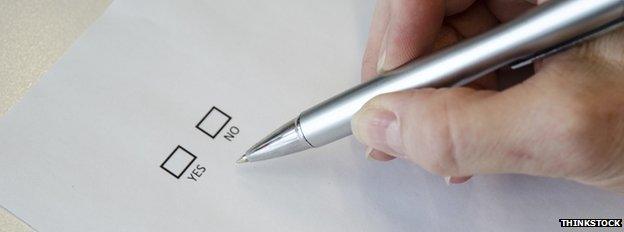
If the restructuring of the Co-op is voted through, the proposals will be put forward to the mutual's membership "within the year", the BBC understands.

Why should we care?
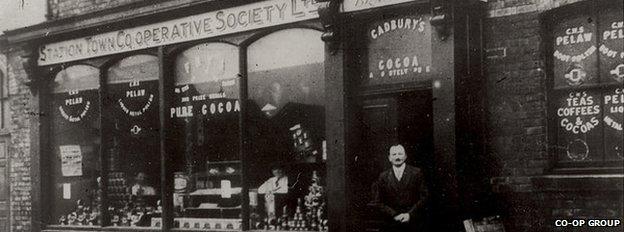
The Co-op has millions of customers and members, employs 90,000 people, and is part of the fabric of many British communities. It has a food store in every UK postal district.
It has seen by many as a prime example of an alternative way of doing business, which is not driven purely by profits.
The Co-op Group also has strong links to the Labour party, and sponsors many Labour MPs.
- Published17 April 2014
